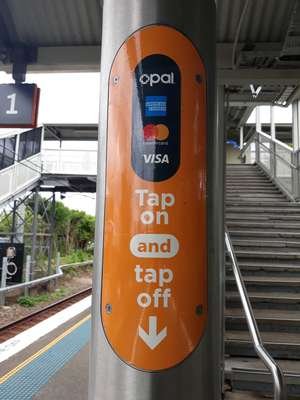Debit dismay: Australians tapped out by hidden fees face cashless conundrum
- Replies 27
In an age where the convenience of tap-and-go is king, many Australians are unaware of the hidden costs that come with the simplicity of using their debit cards.
It's a modern-day conundrum: the ease of cashless transactions versus the stealthy pinch on our wallets through hidden fees.
For seniors, who often manage fixed incomes and tight budgets, understanding these costs is crucial.
A recent revelation brought to light that Australians are collectively paying a staggering $1 billion annually in hidden fees for going cashless.
This figure breaks down to an average of $140 per person each year, a significant sum that could be better spent on life's necessities or pleasures.

Graham Cooke, Finder's Head of Consumer Research, highlighted that many businesses, including restaurants, bars, and retail stores, are not transparent about the fees they charge customers for debit card transactions.
‘People are using credit and debit cards more because of the increased availability of EFTPOS machines,’ he pointed out.
‘I can get my Big Issue (a magazine sold on the streets by the homeless) with my credit card.’
The price comparison website Canstar reported in February that total fees surged by $400 million last year, reaching a whopping $4 billion.
This increase is one of the driving forces behind a growing number of Australians who are reconsidering their payment methods and expressing concerns about a cashless society.
In a bold move, the 'Cash Out Day' protest was launched, prompting long queues at ATMs as residents withdrew cash in a statement against hidden card fees.
The most popular method of card payment, tap-and-go, accounts for 95 per cent of in-person transactions and is also the most expensive.
While inserting a card into an EFTPOS machine typically costs a merchant less than 0.5 per cent per transaction, contactless payments using Visa and Mastercard networks can incur fees ranging from 0.5 per cent to 1.5 per cent, depending on the card type.
For example, a $100 purchase could add an average cost of 28c for EFTPOS, 52c for Mastercard, 47c for Visa, and a substantial $1.88 for digital payments provider Square.
Small businesses, in particular, are caught in a financial bind. Many cannot absorb these costs and are forced to pass them on to customers.
A small business owner shared on social media that using Square for EFTPOS transactions cost their business a large sum in fees last year.
‘I run a small business. We were using Square to take EFTPOS last financial year, it cost us 40k in fees, we just can't absorb the costs. Cash is king,’ they shared.
Even among larger establishments, there are instances where charges are levied for utilising credit or debit cards.
Unlike Coles and Woolworths, which integrate fees into their pricing structure, budget retailer ALDI imposes a nominal standard fee for all card transactions.
Cooke expressed that he feels it was ‘kind of impossible to use plastic in Australia and not encounter one of these fees’.
Despite the costs, Cooke noted that Australians seem to prefer the convenience of plastic, and the trend towards a cashless society continues unabated.
‘It hasn't hurt the march towards a cashless society. The ATM withdrawal numbers are going down pretty consistently,’ he explained.
‘In 2008, you are talking 80 million withdrawals since then, and it has been declining consistently since.’
While numerous individuals have attributed the acceleration of the transition away from cash to the COVID lockdowns, Cooke stated that this was not the case from a broader perspective.
‘There was a big drop in ATM withdrawals in COVID and it has recovered since then, but you look at where it is now, the downward trends it is exactly where you would expect it to be without COVID happening,’ he explained.
‘COVID has had no effect on the continuing decline of using cash in Australia.’
Interestingly, Cooke speculated that the solution to high surcharges may lie in the approach taken by other countries, such as Britain, where retailers are prohibited from charging extra for payment fees.
A Finder survey found that 74 per cent of Australians believe banks and card issuers should bear the cost of processing card payments, with only 6 per cent thinking the customer should cover these expenses.
The Council of Small Business Chair, Matthew Addison, suggested that banks should assist businesses in installing payment machines with a least-cost routing system to minimise fees.
LCR is a method that allows retailers and merchants to select the payment network that offers the most economical option for processing the majority of contactless transactions made with dual network debit cards, typically involving EFTPOS in many instances.
‘The banks really need to get behind this, and make it simple for business to adopt and simple to understand, Addison asserted.
‘If we can keep the costs of doing business down, that means the business doesn't have to increase their prices.’
‘The costs are going up, and here is a way that is no cost to the government, no cost to the budget to enforce a system that will save costs for small business,’ he added.
Currently, only about 54 per cent of businesses use least-cost routing, a concern for the Reserve Bank of Australia (RBA).
The RBA indicated that if there isn't an 80 per cent uptake of the system by mid-year, it may become a formal regulatory requirement.
Reserve Bank Governor Michele Bullock urged banks and payment providers to endorse the scheme and streamline the process for merchants to participate, making it as convenient as possible.
The frustration over hidden fees associated with debit card usage underscores a broader concern about Australia's transition towards a cashless society.
As more Australians rely on electronic payments for everyday transactions, the impact of banking fees on consumers becomes increasingly apparent.
This shift away from cash has been accelerated by various factors, including the convenience of card payments and the effects of the COVID-19 pandemic.
However, as one TV host highlighted, there are alarming implications associated with this trend that go beyond just financial costs.
 Have you noticed these hidden fees affecting your budget? Do you prefer cash over cards to avoid extra charges? Join the conversation and let us know in the comments below.
Have you noticed these hidden fees affecting your budget? Do you prefer cash over cards to avoid extra charges? Join the conversation and let us know in the comments below.
It's a modern-day conundrum: the ease of cashless transactions versus the stealthy pinch on our wallets through hidden fees.
For seniors, who often manage fixed incomes and tight budgets, understanding these costs is crucial.
A recent revelation brought to light that Australians are collectively paying a staggering $1 billion annually in hidden fees for going cashless.
This figure breaks down to an average of $140 per person each year, a significant sum that could be better spent on life's necessities or pleasures.

Due to the rise in EFTPOS and contactless payment usage, Australians are collectively facing approximately $1 billion in concealed debit card fees each year. Credits: Shutterstock
Graham Cooke, Finder's Head of Consumer Research, highlighted that many businesses, including restaurants, bars, and retail stores, are not transparent about the fees they charge customers for debit card transactions.
‘People are using credit and debit cards more because of the increased availability of EFTPOS machines,’ he pointed out.
‘I can get my Big Issue (a magazine sold on the streets by the homeless) with my credit card.’
The price comparison website Canstar reported in February that total fees surged by $400 million last year, reaching a whopping $4 billion.
This increase is one of the driving forces behind a growing number of Australians who are reconsidering their payment methods and expressing concerns about a cashless society.
In a bold move, the 'Cash Out Day' protest was launched, prompting long queues at ATMs as residents withdrew cash in a statement against hidden card fees.
The most popular method of card payment, tap-and-go, accounts for 95 per cent of in-person transactions and is also the most expensive.
While inserting a card into an EFTPOS machine typically costs a merchant less than 0.5 per cent per transaction, contactless payments using Visa and Mastercard networks can incur fees ranging from 0.5 per cent to 1.5 per cent, depending on the card type.
For example, a $100 purchase could add an average cost of 28c for EFTPOS, 52c for Mastercard, 47c for Visa, and a substantial $1.88 for digital payments provider Square.
Small businesses, in particular, are caught in a financial bind. Many cannot absorb these costs and are forced to pass them on to customers.
A small business owner shared on social media that using Square for EFTPOS transactions cost their business a large sum in fees last year.
‘I run a small business. We were using Square to take EFTPOS last financial year, it cost us 40k in fees, we just can't absorb the costs. Cash is king,’ they shared.
Even among larger establishments, there are instances where charges are levied for utilising credit or debit cards.
Unlike Coles and Woolworths, which integrate fees into their pricing structure, budget retailer ALDI imposes a nominal standard fee for all card transactions.
Cooke expressed that he feels it was ‘kind of impossible to use plastic in Australia and not encounter one of these fees’.
Despite the costs, Cooke noted that Australians seem to prefer the convenience of plastic, and the trend towards a cashless society continues unabated.
‘It hasn't hurt the march towards a cashless society. The ATM withdrawal numbers are going down pretty consistently,’ he explained.
‘In 2008, you are talking 80 million withdrawals since then, and it has been declining consistently since.’
While numerous individuals have attributed the acceleration of the transition away from cash to the COVID lockdowns, Cooke stated that this was not the case from a broader perspective.
‘There was a big drop in ATM withdrawals in COVID and it has recovered since then, but you look at where it is now, the downward trends it is exactly where you would expect it to be without COVID happening,’ he explained.
‘COVID has had no effect on the continuing decline of using cash in Australia.’
Interestingly, Cooke speculated that the solution to high surcharges may lie in the approach taken by other countries, such as Britain, where retailers are prohibited from charging extra for payment fees.
A Finder survey found that 74 per cent of Australians believe banks and card issuers should bear the cost of processing card payments, with only 6 per cent thinking the customer should cover these expenses.
The Council of Small Business Chair, Matthew Addison, suggested that banks should assist businesses in installing payment machines with a least-cost routing system to minimise fees.
LCR is a method that allows retailers and merchants to select the payment network that offers the most economical option for processing the majority of contactless transactions made with dual network debit cards, typically involving EFTPOS in many instances.
‘The banks really need to get behind this, and make it simple for business to adopt and simple to understand, Addison asserted.
‘If we can keep the costs of doing business down, that means the business doesn't have to increase their prices.’
‘The costs are going up, and here is a way that is no cost to the government, no cost to the budget to enforce a system that will save costs for small business,’ he added.
Currently, only about 54 per cent of businesses use least-cost routing, a concern for the Reserve Bank of Australia (RBA).
The RBA indicated that if there isn't an 80 per cent uptake of the system by mid-year, it may become a formal regulatory requirement.
Reserve Bank Governor Michele Bullock urged banks and payment providers to endorse the scheme and streamline the process for merchants to participate, making it as convenient as possible.
The frustration over hidden fees associated with debit card usage underscores a broader concern about Australia's transition towards a cashless society.
As more Australians rely on electronic payments for everyday transactions, the impact of banking fees on consumers becomes increasingly apparent.
This shift away from cash has been accelerated by various factors, including the convenience of card payments and the effects of the COVID-19 pandemic.
However, as one TV host highlighted, there are alarming implications associated with this trend that go beyond just financial costs.
Key Takeaways
- Australians are paying an estimated $1 billion annually in hidden fees for using debit cards due to increased usage of EFTPOS machines and contactless payments.
- The average Australian could be spending around $140 each year on these hidden fees, contributing to growing concerns about the shift towards a cashless society.
- Consumer experts suggested that businesses are passing on the costs of bank fees to customers, especially for tap-and-go transactions, which are the most popular, but also the most expensive.
- The Reserve Bank of Australia is considering enforcing a formal regulatory requirement if the take-up of least-cost routing for card payments does not reach 80 per cent by mid-year, to reduce costs for businesses and consumers.







